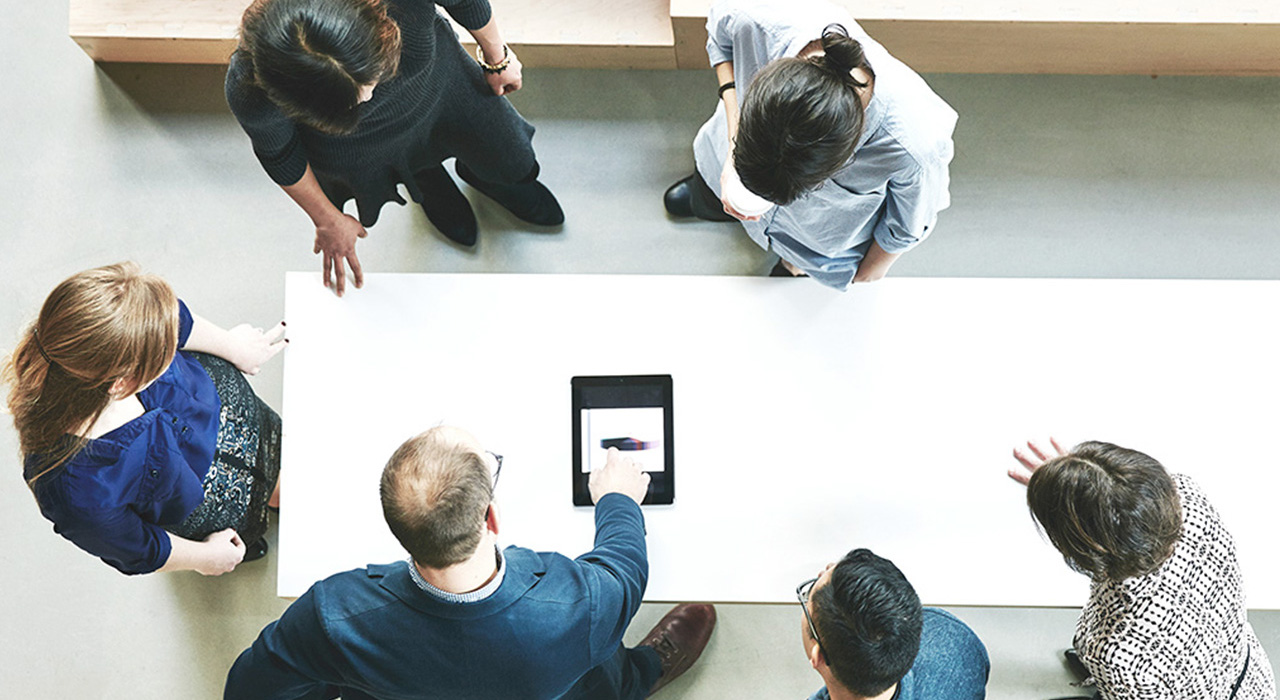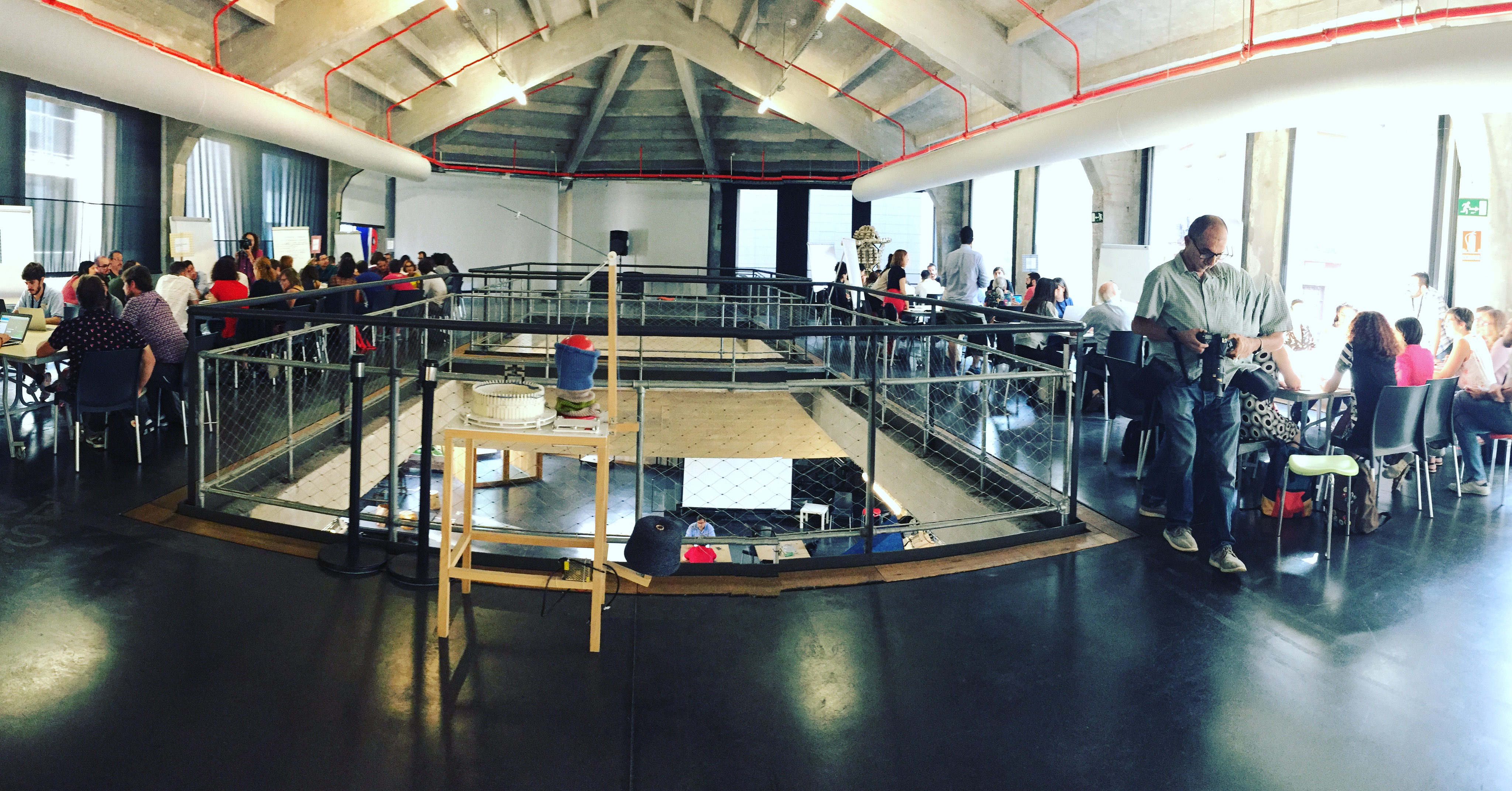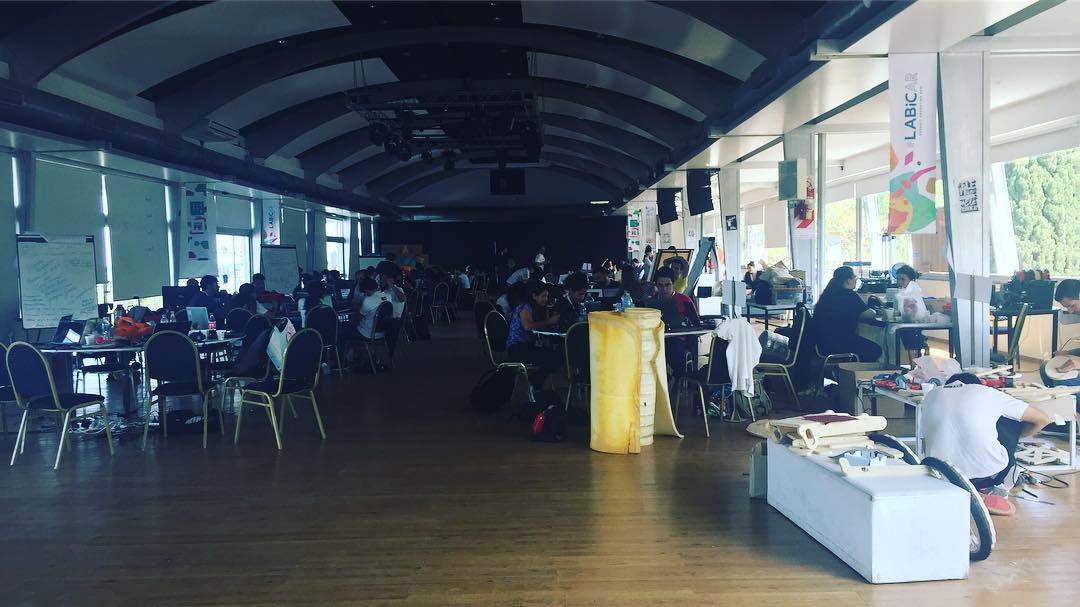
Civic Innovation Labs in Iberoamerica
Towards a Network of Interdependence and Mutual Support
In 2018 Madrid hosted the Iberoamerican Meeting on Civic Innovation, promoted by the Union of Iberoamerican Capital Cities, the Iberoamerican General Secretariat and the Civic Innovation Lab of the Townhall of Madrid, Medialab Prado.
The meeting gathered more than 120 experiences of citizen innovation from Iberoamerica and it made the attendants consider the value of creating a network of initiatives that break with traditional ways of governing public policy.
Over the past few years the concept of civic innovation has gained purchase in many countries, cities, neighborhoods and communities.
The difficulty of institutions to grasp and comprehend the difficulties that people encounter in their daily lives has triggered the rise of new ways of citizen participation, in which the members of the communities are responsible for contributing to identifying the issues and possible solutions that could improve their life conditions.
This new methodologies to design public policies that are both efficient and attentive to the real needs of the community require a change of the paradigm of those who lead institutions.
Thus, the past few years, they have advanced towards installing experimental logics in the institutional fabric, recognizing that collective knowledge and amateur enthusiasm is also a means to solve the problems of the common.

As Parsons DESIS Lab stated in 2013, this logic of collective work has been assimilated by several governments. It has led to the creation of units inside public institutions that work under the logic of experimental and empirical work.
The Iberoamerican General Secretariat (SEGIB for its name in Spanish) has been key to identify that “civic innovation is the process that leads to the resolution of social issues with technologies and methodologies that are open to the involvement of the community affected by the issue itself”. For this reason, from 2014 on the SEGIB has promoted numerous meetings of work under lab logics. This is, through an open call for proposals, they select a number of projects focused on the issues that a particular community faces, and the participants are then invited to model a prototype for them.
Through the engagement with transdisciplinary work, they simulate the different possible solutions to the issue with the aim of causing a change in the system. Moreover, they identify the logics of cooperation needed to solve a conflict.
As Elinor Ostrom (2013), awarded with the Nobel Prize for economy and specialized in the issues of collective action, it is possible to achieve a change about a social problem through the isolation of its components and the testing of different technologies.
The methods that civic innovation labs have put forward are now expanding internationally. In fact, the Incubator for Civic Initiatives (VIC for its name in Spanish), supported by the SEGIB, has recently stated that there are initiatives of social innovation arising all over South America.
This constant emergence of new open and horizontal spaces for experimental work that aim to solve common issues has led to international meetings and encounters of the members of these working groups.
In such gatherings the ethics of movements like hacktivists, the maker production and institutional knowledge meet. As Hinamen (2012) would state, these meetings are spaces that promote a culture of knowledge and enriched interaction between different participants. A space that operates like a common that must be built on a foundation of reciprocity and mutual trust.
Consequently, the network of civic innovation labs is assembled over values that break with the traditional logics of production of the contemporary industrial culture. Instead, they foster an ecological and sustainable production.
The labs are weaved in a network of interdependencies where the recognition of diversity is the main support of cooperation. This interdependence ought to be a guarantee of the democratization of opportunities and the decentralized promotion of knowledge, care and social welfare.
In October 2018, the civic innovation lab of Santa Fe organized in Rosario, Argentina, the fifth civic innovation lab promoted by the SEGIB. The gathering was focused on the alignment of the projects and their contribution to the Sustainable Development Goals.

The final presentation of each of the experiences was overwhelming. The solutions reached focused on crucial issues of contemporary society. Nevertheless, these ideas are still beyond the capability of institutions.
The Iberoamerican Lab Meeting, whose main findings were shared in December 2018, contacted professionals from 37 different cities that promote and participate in civic innovation in the context of cities.
Although the meeting aimed at sharing experiences, the organizers, promoters and mentors also contributed to the different emerging projects of social innovation in Latin America. With this approach, the gatherings around social innovation do not turn into a business meeting or the diffusion of success cases, but contribute and promote the constant transformation of their own initiatives and the individuals who are driving them instead.
The encounters are crucial because they lead to considering new issues, like whether the meetings of the labs are fertile spaces to deepen and escalate their findings.
This is a troubling question for many, especially those who assist to this gathering in the Latin American context. In this region civic innovation is urgent to overcome the intertia of administrative apparatuses and reveal social issues in areas as central as public healthcare, democracy and education.
Hence, it is important to leave space for these considerations so that, those who cooperate at the different levels of construction of these spaces of exchange can find real forms to distribute the resources between different labs. As it was evident during the last Labic, and the Iberoamerican Labmeeting, it is necessary to advance towards the meeting of the Sustainable Development Goals, with a special emphasis on number 17: strengthening the means for implementation and revitalizing the global partnership for sustainable development. Articulating innovative partnerships for the mobilization of resources and an equal distribution of opportunities for action would allow advocating for a more decentralized knowledge. More importantly, it would support the abilities and initiatives of civic innovation that arise in developing countries.
Ostrom, E.(2005) "Understanding Institutional Diversity". Princeton University Press: Nueva Jersey.
Himanem, P. (2004). "La ética del hacker y el espíritu de la era de la información". Destino ed., Barcelona.
“Innovación ciudadana”. Consultado enhttps://www.santafe.gob.ar/ms/labicar
“VIc, Vivero de Iniciativas Ciudadanas". Consultado en http://viveroiniciativasciudadanas.net/
“Innovación ciudadana/SEGIB”. Consultado enhttps://www.segib.org/category/cohesion-social/innovacion-ciudadana/
“Objetivos para el Desarrollo Sostenible”. Consultado enhttps://www.un.org/sustainabledevelopment/es/objetivos-de-desarrollo-sostenible/
“Gov Innovation Labs”. Consultado en http://nyc.pubcollab.org/files/Gov_Innovation_Labs-Constellation_1.0.pdf,







Add comment